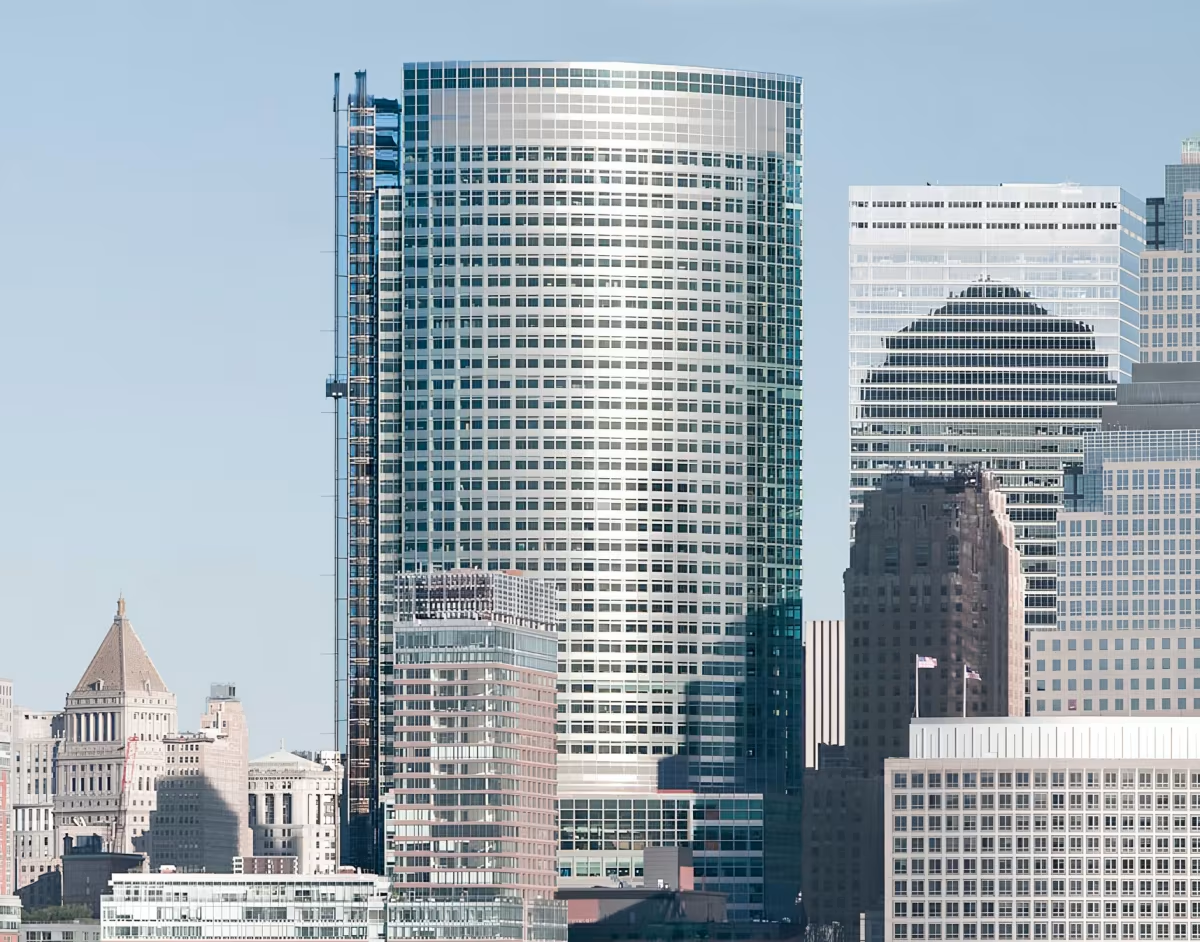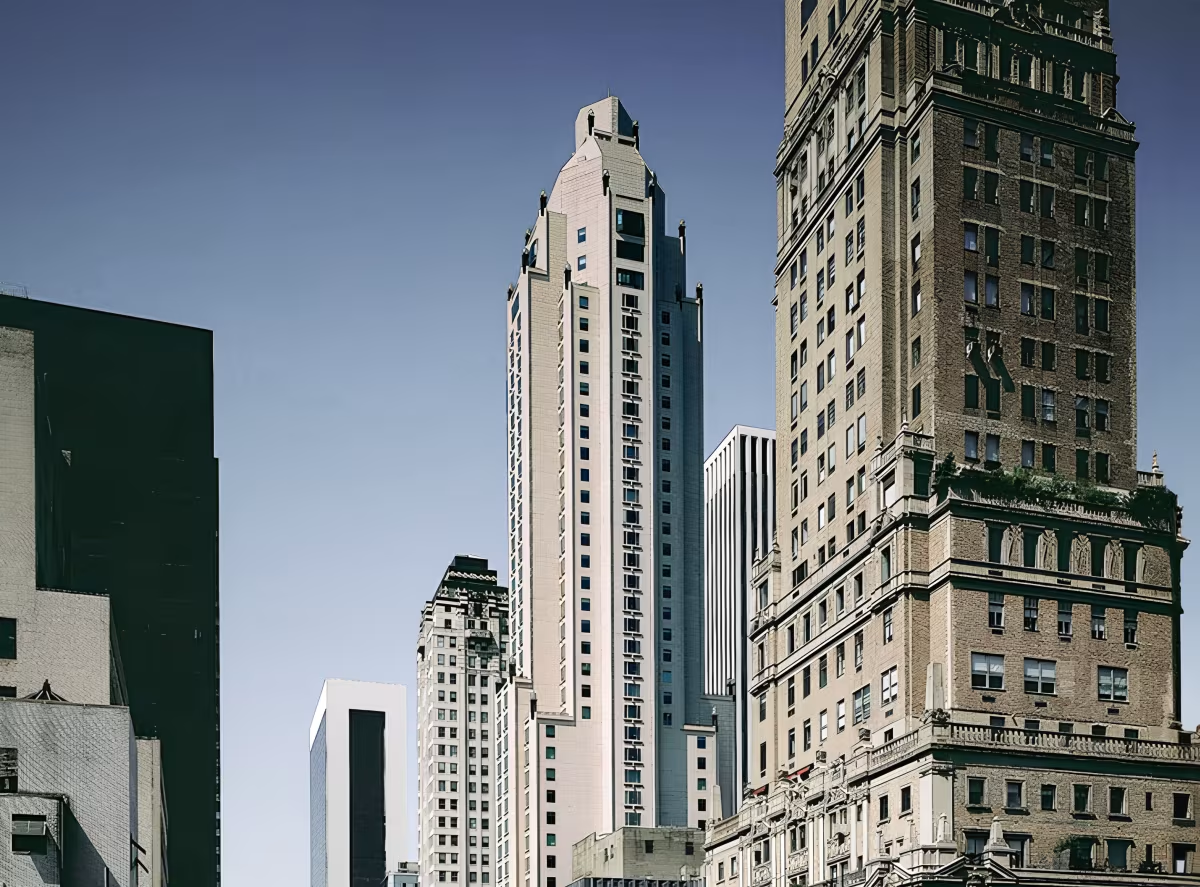200 West Street Building vs Four Seasons Hotel New York


Comparing the 200 West Street Building and the Four Seasons Hotel New York is particularly interesting because they share the same skyline in New York, NY, and were both designed by Pei Cobb Freed & Partners. However, they were completed more than 17 years apart.
This offers a unique perspective on how the architect's style and the city's architecture evolved over time.
Height & Size
These two towers present an interesting contrast in their proportions. The 200 West Street Building rises higher at 741ft (226m), while the Four Seasons Hotel New York reaches 682ft (208m). However, the Four Seasons Hotel New York accommodates more floors with 52 levels above ground, compared to 45 floors in the 200 West Street Building.
This suggests different approaches to interior space design. The 200 West Street Building has an average floor-to-floor height of approximately 5m, while the Four Seasons Hotel New York has more compact floors averaging around 4m each. The taller building's more generous floor heights might indicate grander interior spaces, higher ceilings, or different programmatic requirements.
These different proportions likely reflect the specific needs each building was designed to serve, whether driven by zoning regulations, client requirements, or the intended use of the spaces within. The contrast shows how architects can achieve different spatial experiences even when working with similar overall building scales.
Architectural Style
The 200 West Street Building was designed in the Contemporary style, while the Four Seasons Hotel New York reflects the principles of Postmodernism.
The Four Seasons Hotel New York represents a late expression of the Postmodernism, a style already in decline in 1993 when it was completed. By contrast, the 200 West Street Building followed the then mainstream Contemporary, embodying the dominant architectural direction of its time.
Uses
The 200 West Street Building is primarily commercial, while the Four Seasons Hotel New York is primarily hotel.
The Four Seasons Hotel New York incorporates a 5-star hotel with 368 rooms. More information is available at the official website.
Structure & Facade
The two buildings opted for different structural and facade solutions.
The 200 West Street Building uses a Trussed Frame system, which uses diagonal bracing in addition to beams and columns for stability, while the Four Seasons Hotel New York uses a Frame system, that relies on a regular grid of columns and beams to sustain its weight.
And when it came to the facade, the Curtain Wall went with a Curtain Wall facade, which uses a lightweight glass curtain wall hung from the structure, while the Four Seasons Hotel New York opted for a Masonry facade, that features a heavy masonry skin that gives it a more clasical look.
| 200 West Street Building | Four Seasons Hotel New York | |
|---|---|---|
| Pei Cobb Freed & Partners | Architect | Pei Cobb Freed & Partners |
| 2005 | Construction Started | 1990 |
| 2010 | Year Completed | 1993 |
| Contemporary | Architectural Style | Postmodernism |
| Commercial | Current Use | Hotel |
| 45 | Floors Above Ground | 52 |
| 226 m | Height (m) | 208 m |
| 195095 | Built-up Area (m²) | 49000 |
| Trussed Frame | Structure Type | Frame |
| Steel | Vertical Structure Material | Concrete |
| Poured Concrete Over Metal Decking | Horizontal Structure Material | Concrete |
| No | Facade Structural? | Yes |
| Glass, Steel | Main Facade Material | Limeston, Glass |
| Goldman Sachs | Developer | EIE Regent Av Corporation |
| Cosentini Associates | MEP Engineer | Jaros, Baum & Bolles |
| Halcrow Yolles | Structural Engineer | Rosenwasser/Grossman Consulting Engineers |
| NY | State | NY |
| New York | City | New York |
| 200 West Street | Address | 57 East 57th Street |